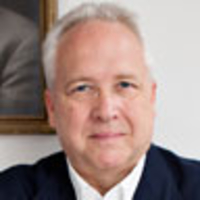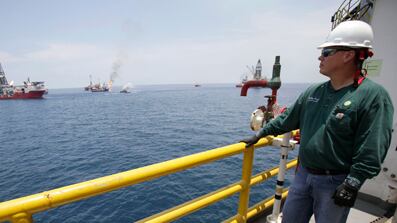Nearly 1,000 small-business owners from Alabama and Florida’s Gulf Coast were packed into the Orange Beach, Alabama, recreation center yesterday when Mayor Tony Kennon asked people to stand if they had filed a claim since August 23. Nearly the entire audience stood. Then he asked those who had received any payments from the office of federal “claims czar” Kenneth Feinberg to remain standing. All but two dozen sat down. And of that number, only five or so had been paid more than half of what they asked for.
That neatly summed up what’s been going on in the Gulf over the past few weeks. While the capped well and somewhat optimistic short-term damage reports have lifted spirits somewhat, the federal government’s assumption of claims payments—originally hailed here as a way to get people paid impartially—has been bogged down by delays and poor communication.

“The BP process was better,” says Pensacola lawyer Matthew Villmer, whose firm is handing claims for 30 clients.
The biggest problem, by large consensus: the inability to address issues with actual humans. Villmer describes visiting Pensacola’s claims office in person: “All they could do is look up the basic claims information on the computer. I could have done the same thing from my office. No one knows who their adjuster is. They're all put in a queue for the adjusters to pull down. They don’t have to put their name on the claim.”
“There are some who have gotten more than they asked for, but when the payments aren’t as generous, you can’t talk to anyone about the adjustment or how to increase the payment,” he adds. “We had a client receive half of what they filed. Why? There is no one to talk to about how they adjusted the claim.”
Keith Brooks tells a common story: He quit his job nine days before the Deepwater Horizon explosion to start a website with his wife, Kim, to help promote the Gulf Coast, YourFloridaEmeraldCoast.com. They had dozens of commitments from advertisers and had a strong base to launch the site—before the explosion.
In July, Brooks first submitted his claim. Because it was a new business without a history, he had some challenges, but was eventually able to document his claim for his BP adjuster. Unfortunately, when he got all of his documentation in and had the adjuster satisfied, it was August 18 and Brooks was told that his claim was being passed on to Feinberg’s team.
On August 23, Brooks went online and got a new claim number. He called the next day and verified that they had his documentation. The person on the phone told him that the turnaround would be about seven days.
When he called back later, the person answering the phone wasn’t quite as friendly, but told him that they were reviewing his claim. He called again this week and asked to speak to the person handling his claim and was told that he couldn’t because it would slow down the process.
“I overpromised and under-delivered on timing,” admits claims czar Kenneth Feinberg.
“I’m in limbo, unable to speak with anyone about my claim,” Brooks tells The Daily Beast. “At least BP’s adjusters would talk with you.”
Mayor Kennon is quick to say that he doesn’t want the claims process back in BP’s hands. “BP was a disaster,” says the mayor, whose town’s business has lost roughly $100 million in sales (the government has thus missed $4 million in sales tax revenue), and received less than 10 percent of that amount from BP or the federal claims office. “Our season is over and our reserves are gone. Mr. Feinberg needs to make sure we have timely, adequate payments. Otherwise, mass failures of businesses are certain.”
It was Kennon who called the meeting—and also called Feinberg, who appeared in person to address the complaints. “I got a call last week from your mayor, who told me I’d better listen,” the claims czar told the audience. “I said don’t you convey what they said, I ought to come and hear for myself.” “I love this community,” Feinberg added. “I appreciate this community. I am your advocate.”
Kennon’s request for Feinberg: “Write checks for whatever we say the claim is. It may be generous, so what. BP can never make us whole.”
That’s obviously unlikely to happen. But speed would make up for size, to a large degree.
“Expediency is the key," says Keith Lee, owner of a furniture store in Orange Beach. "It’s an emergency and we’re going to be DOA. Just take whatever BP paid me for one month, add a little and multiply it by six. We have no advocate. We have no forum. We have got to have cash now.”
And that was the theme of the town-hall meeting. People were tired of the red tape, tired of waiting for checks, and have run out of alternatives. A dozen people in the room had lost their homes or closed their businesses because of the oil disaster.
Margo Vincent told the Orange Beach crowd about how she had sold family jewelry to make ends meet while she waited for checks for her vacation rental business in Destin, Florida. Trisha Adams, a new deli owner, says her claim was put into a “dead file” until she finds a comparable Orange Beach business that will share its sales figures to substantiate her loss. The owner of another restaurant was told that all her documents she submitted to BP had been lost and had to be resubmitted. When she told the local claims office that Feinberg had said that she would be paid in seven days—a statement I personally heard him make on a visit he made to Pensacola on August 11—she was told that she misunderstood him and that it would take four to seven weeks.
To his credit, Feinberg didn’t back down or point blame elsewhere. “I overpromised and under-delivered on timing. We are processing 1,000 claims a day, but too many people are waiting for checks. I’ve got to find a way to accelerate the payments.”
He also said that too many people have been sent too little. “The generosity of the fund has been called into question.” Feinberg has already authorized supplemental checks and is looking at how to process claims without the present degree of micromanagement of documentation.
But he also cited successes. “In the first three weeks of the Gulf Coast Claims Facility, I approved 16,000 claims and authorized payments in excess of $185 million,” he said. “I have distributed more money in three weeks than BP distributed in three months.
“I don’t want you to think I’m simply an agent of BP. Whatever flaws there are in the system, they are mine, not BP.”
For two hours, Feinberg stayed at the podium and listened to claims horror stories and recommendations for improvements. He said he plans to have someone who can be his “eyes and ears” in Alabama and who can answer to the locals on the claims. And to win back the trust of the crowd, Feinberg brought 20 adjusters that set up shop next door to the recreation center for the afternoon.
As soon as he announced that, about a third of the room immediately ran to get a face-to-face.
Rick Outzen is publisher and editor of Independent News, the alternative newsweekly for Northwest Florida.






